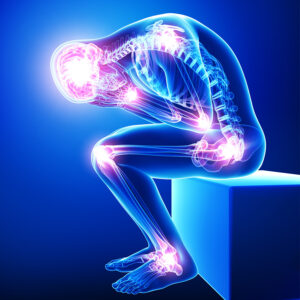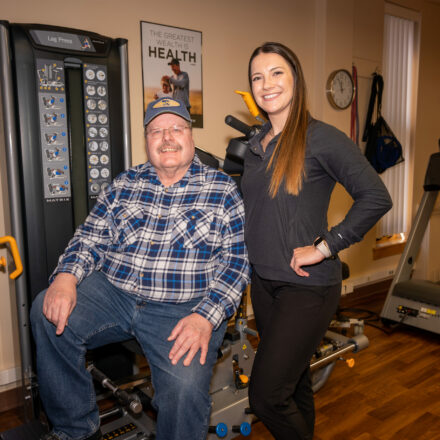
Pain is something everyone deals with at one point or another. In many ways, it’s a universal human experience. Whether it’s dull, sharp, stabbing or throbbing pain always has one overriding characteristic; it is unpleasant!
That unpleasantness comes with a purpose, however. Much like a house alarm warns of an intruder, pain serves as a warning. That is its primary purpose, and as such it is necessary for survival. As strange as it might sound, you’ve probably never thought about pain to be useful for your survival, but in fact there is a rare disorder in which people don’t feel pain, called Congenital Insensitivity to Pain (CIP). It is extremely dangerous and most people with it die in childhood because injuries and illness go unnoticed. Simply put, people with CIP don’t have a functioning alarm — pain — to give them a warning when something goes wrong, like when they hurt themselves or are sick.

Pain related to an injury or damage to our body is often called acute pain. This pain can usually last up to 3-6 months and subsides as tissues heal and our body repairs itself with proper treatment and care. Pain that lasts beyond the healing time is called chronic or persistent. It often lasts well beyond the time of tissue healing and it is not related to damage to our body but rather is similar to a house alarm that gets stuck on — it continues sounding even though there is no danger. Can you imagine how annoying, exhausting and difficult it would be to live in a house with alarms that keep going off all night and day? As unpleasant as this sounds, this is like how people in persistent pain feel. The Centers for Disease Control and Prevention (CDC) estimates that 50 million Americans — just over 20 percent of the adult population — suffers from chronic or persistent pain.
With the latest advances in science we know that no matter what kind of pain you are experiencing — acute or chronic — and no matter how it feels — stabbing, shooting, throbbing etc. — the brain and more broadly the nervous system is always involved in producing pain. As an analogy, the stuck house alarm that keeps sounding when you have persistent pain has more to do with a faulty alarm system, or changes in the nervous system, than with an intruder or actual danger, such as damage or injury to the body. Understanding this is a major key to understanding treatment for chronic pain. Monument Health offers treatment for chronic pain guided by physical therapists trained to understand the complexity of chronic pain and prepared to work with patients to reduce or eliminate their pain.
Monument Health is proud to offer chronic pain management services at the Monument Health Belle Fourche Clinic and the Monument Health Lead-Deadwood Hospital, both serving outpatients.
Urszula Eisner, is a chronic pain physical therapist at Monument Health Rehabilitation in Deadwood.
Doctors & Providers
Category
Blog PostsLatest News
More Like This



